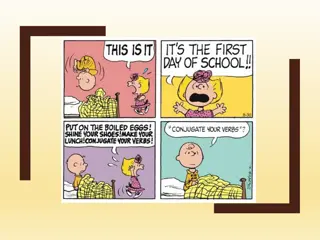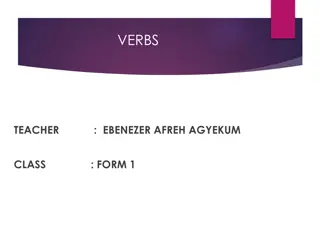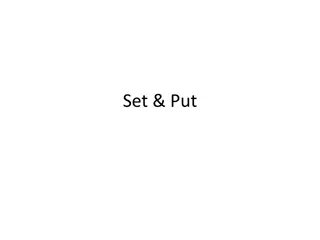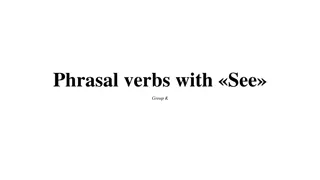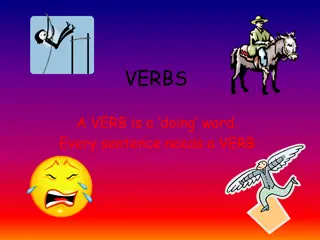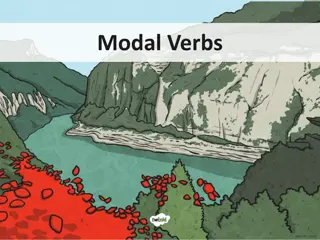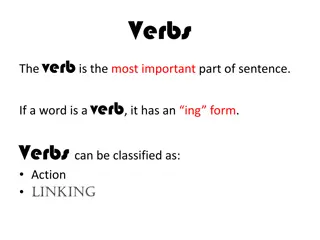Understanding Phrasal Verbs in English Language Courses
The content discusses the concept of phrasal verbs in English language, particularly focusing on the differences between verbs and phrasal verbs. It explains that phrasal verbs are combinations of verbs and adverbs or prepositions that convey specific meanings. Examples and explanations of various phrasal verbs like "come back," "go on," "pick up," "come up with," "point out," "grow up," "come out," and "go out" are provided to help learners understand their usage in context.
Uploaded on Sep 27, 2024 | 1 Views
Download Presentation

Please find below an Image/Link to download the presentation.
The content on the website is provided AS IS for your information and personal use only. It may not be sold, licensed, or shared on other websites without obtaining consent from the author. Download presentation by click this link. If you encounter any issues during the download, it is possible that the publisher has removed the file from their server.
E N D
Presentation Transcript
Faculty of Arts Psychology Department English Language Course 2019/ 2020 Second Term Instructor: Hanan Abul Hamd
What do we mean by the word verb? What is the difference between verbs and phrasal verbs? Phrasal Verbs
Phrasal verbs A phrasal verb is a combination of a verb and an adverb or preposition, for example ' shut up' or ' look after', which together have a particular meaning.
Go Pick Come Find Point Grow Set Turn Get take Go on = happen = Pick up ( ) Come back Come up with Go back Verbs Phrasal verbs
Come back= return to a place (the speaker is in that place) She came back around 10 pm last night. When will you come back from France? Go back= return to a place( the speaker isn t in that place. He finished his work and went back to his flat. When is she planning to go back to Japan? The difference between come back and go back
Go on = happen What s going on? There s a class going on at the moment. What went on last night? Pick up= get something or someone from a place I picked up my brother from the airport. Would you come and pick me up from work? Some phrasal verbs with Examples
Come up with=produce an idea Julie came up with a great idea. He came up with an answer to the question very quickly. Can you come up with a better solution? Find out= get information Can you find out what time the restaurant opens? I found out that we need to submit our essays next Tuesday. Some phrasal verbs with Examples
Point out = show/ mention Please point out to the students that they must attend all the lectures. we ll miss the bus if we don t hurry , he pointed out. Grow up = become an adult I grew up in Scotland. My children are growing up too fast! When will he grow up? Come out= appear from a place She came out of the kitchen. He went to the caf and came out with a coffee. Go out= go to an event/restaurant/ pub/party Let s go out for dinner You re going out a lot these days. Some phrasal verbs with Examples
Set up= create/arrange I need to set up a new bank account Get out= leave a room/ building /car I need to get out of the house! She got out of the car and went into the shop. Turn out= in the end we discover The maid turned out to have stolen the money. He turned out to be a friend of Alex s. Come in/into=enter(the speaker is in that place) Please come in! It s great to see you. She came into the living room and sat down. Some phrasal verbs with Examples





